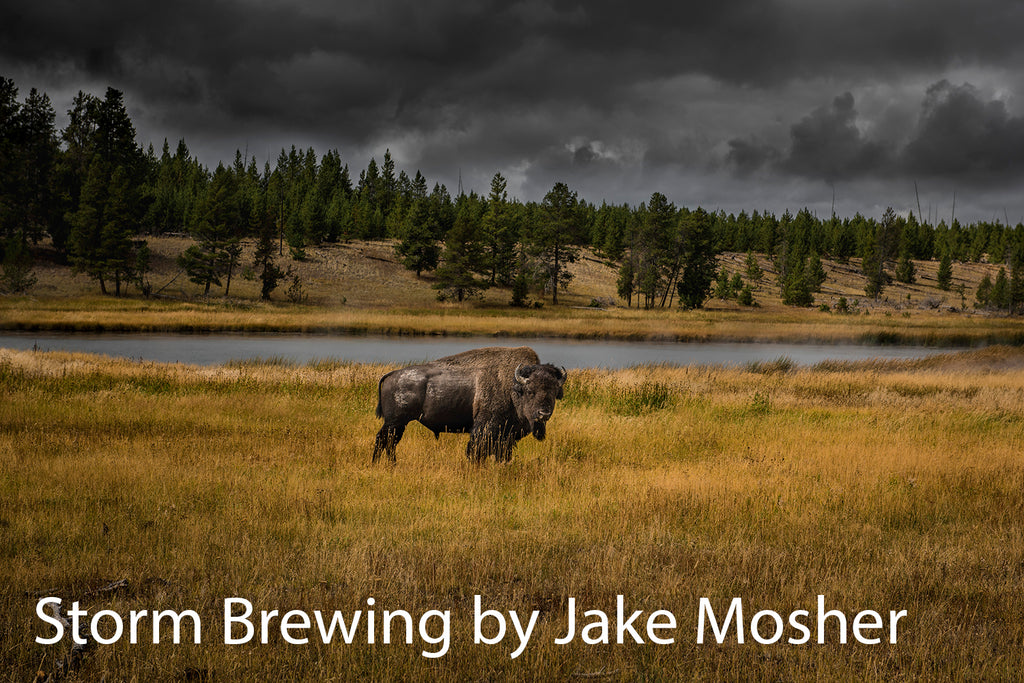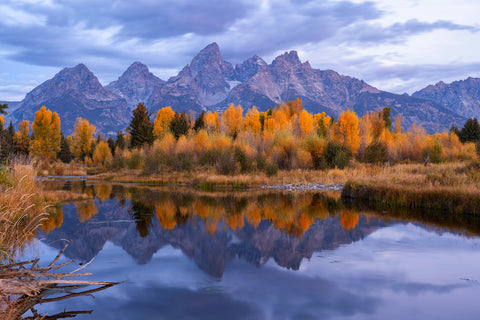Over a million acres burned in Montana this summer. More than any year in recorded history. For two and a half months, the entire state woke to blood-red sunrises, sky-blocking plumes of smoke, air quality as poor as in any smog-cloaked city, and the constant fear that with a single spark more fires would rage. Homes were destroyed, firefighters lost their lives, and millions upon millions of dollars were spent, but as our president thundered about North Korea, Hurricanes Irma and Harvey chewed paths of destruction through Florida and Texas, and wild land fires threatened Los Angeles, not much was written nationally about Montana burning.
Today, the sky is clear. There is the unmistakable chill of fall, snow in the high country, a wintry-mix forecast for the coming week, and a deep sense of relief that the fire season of 2017 is behind us. As I sip strong coffee doctored with Vermont maple syrup this morning, watching the sun rise blindingly-yellow and bright, I am relieved, too, but I fear that our reprieve is seasonal.
Some will say that it always has been. That our lodgepole pine and Douglas fir, with their serotinous cones dependent upon fire to open and reseed the forest, are proof enough that as part of a healthy, natural environment fire must come. Natural is the kicker, I think, as I reload my coffee. And natural we haven't seen in a very long time, nor do I believe I'm being the least prophetic in saying in no uncertain terms that we will not see it return.
I stir a little raw honey into my French roast, rich with the flavor of September sage blossoms, and, like a cat, shift in my chair to follow the sunlight. From the time we first gathered in communities, realizing that with communication and teamwork we have the unique ability among our animal relatives to significantly alter our environment to suit us, we have left an indelible mark upon the landscape. We have spread across the globe like no other species, thriving in desert and tundra alike, bending all which doesn't conform to our needs, often with little care or consideration for consequences more than a generation out. In plain English, it's coming back to bite us in the ass, I think, and it's got jaws like a bear trap.
I saw a bear this weekend. A great, silver-tipped grizzly with a thin coat of fall snow on his back, fur already thick and sleek, so intent on eating that he never looked in my direction long enough for anything close to the picture I wished for.
We're a fickle lot, I thought even then. For a hundred years, we did everything in our considerable power to eradicate them from Montana, including trapping, snaring, shooting, and poisoning. We bid fare to wipe them out entirely, though even during the height of our persecution retained a certain reverence, immortalizing the cagiest of bears with names like Old Mose and Waab. And then one day with lessons taught by the passenger pigeon, we jammed on the brakes with both feet, sounded the alarm bells, called all hands on deck and threw our weight behind protecting them.
"Save the grizzlies," the cry echoed, and we did just that. We saved the hell out them, yet somehow expected them to ignore a hundred thousand years of instinct and stay in the greater Yellowstone ecosystem, understanding that their indigenous, prairie homes are off limits this time. We politely asked that they refrain from mauling bow hunters, eating hikers, and being hit by automobiles, too. We suggested that they supplement their historic diet of elk calves in the spring with enough protein from other sources to help us protect dwindling herds. The bears? Predictably, or, evidently for many of us not, the bears have shown a very grizzly-like disdain for our desires. How dare they?

I desperately want a third cup of coffee. I've told myself two's my limit, but there's little more than a splash left in the pot and I can't see letting it go to waste. I pour it into my ceramic mug, a properly heavy coffee cup the color of late-autumn leaves fallen after a hard rain, stenciled with the tracks of a walking wolf.
I remember seeing a real wolf track, dotting the snow along a frozen, Montana creek, almost twenty years ago. I was struck by how large it was, giant toes crescent-mooning a pad the size of my hand, strides almost twice as long as a coyote. I followed with my eyes to where it climbed a wind-blown hill and disappeared into a horizon of heavy lodgepole. Woods are woods, I thought, but with wolves and grizzly bears they're wild.
Still, a part of me was uneasy. I'd seen gray wolves in Labrador, Newfoundland, with my dad during fishing trips when I was a kid. I'd watched them dogging massive caribou herds so large that it sometimes took more than a full day for one to pass where we cast our flies, animals streaming by all through the night. That's the predator-prey relationship they evolved in, I thought, wondering if our elk herds would sustain them here on the Montana landscape where, like the grizzly, we'd spent a century removing them.
America once had twenty million bison in it, I thought, staring at the wolf's tracks until my vision blurred and I had to blink. More than an ample prey base. But when we decided in 1995 that Yellowstone Park would be a healthier, more natural environment if the wolf's howl once more echoed across its geothermal features, bringing 14 animals down from Canada to start an American pack, had we taken into consideration the near-extinction of the bison?
Hell, no, I think as I upend my coffee mug, letting the last grounds-specked rivulet trickle into my mouth. We wanted wolves, but when they actually acted like wolves - decimating elk herds, eliminating local populations of moose, spreading to every corner of Western Montana, Northern Wyoming, and Eastern Idaho, we backpedaled, scrambled for some way to control their numbers, and tried to convince ourselves that what we witnessed was no more than Nature's uninterrupted cycle of perfection.
"It will balance out," I heard proponents of the wolf tell sportsmen complaining about drastic declines in elk and deer populations. "Give it time, and it will all balance out."
Well, they got that part right. Mountain ranges where I used to find hundreds of elk and for a time saw plenty of wolf sign, now have thousands of acres of prime habitat with very little of either. Yes, sir, things have certainly balanced out, and in many places you'll go a damn long time before hearing a wolf's howl or an elk's bugle. In many places, beautiful as they may be, there's a whole lot of nothing. 
Time to stretch my legs. Get up and walk around. Anything to keep me from dumping another fistful of coffee into the brew basket. I'll make a circuit around the block, still early enough in the morning to have the sidewalk to myself, still cool enough to really feel like fall.
We Moshers are not known for dawdling, and in ten minutes I have to consciously slow my pace. I need a little more time away from my desk, but at this rate I'll arrive back at my front door before I've left. I force myself to stop and look at a neighbor's flower garden, daisies and hollyhocks still blooming despite a heavy frost a few nights ago.
We're a species of pickers and choosers, I think, staring at the beautifully manicured garden. Our subjective sense of aesthetics, combined with a relatively large brain that more or less gets most of us down the path from inception to completion, says we hack down the thistle and plant the lily. If the humming bird prefers thistles, no matter, we will plant it prettier lilies.

We mold the world around us to our desire for beauty and cuddly and cute and gentle. I can't imagine anyone, myself included, scouring the ditches for roadkill deer, hauling them into our yards, allowing the stench of death to waft through the neighborhood in hopes of attracting a turkey vulture. Not exactly our style, though I'm certain the vultures wouldn't mind. Instead, we build homes for the bluebird. Ornate, sometimes-shingled, often painted with details right down to shuttered windows, miniature representations of the houses we live in ourselves because after all, isn't that what the bluebird really wants?

If a spotted fawn, new to the world and the ways of suburbia wanders into our yard and lies down, how quickly will its picture generate likes on Facebook! We will be calling it Bambi, forgoing the starting of lawn mowers, backyard grills, and perhaps even our automobiles until its nap is finished and it's moved on. **

Staring at a recently finished front porch, I laugh imagining the reaction if a badger took up residence under it. Instead of gushing on social media about the "beautiful badger living under my porch," and the "wonderfully strange noises it makes" when I trod on the boards above him, we'd be Googling everything from animal control to local law enforcement. Meanwhile, the badger would be doing what it does best - being a badger.

On the other side of the street, across from the new porch, a house cat struts up a rock walkway and flops down on a door mat. I've always liked cats and admired their independence - their aloof nature and unbending resolve never to come when called unless it's precisely what they want at that very moment. Whoever owns this one, has installed a pet down for it to come and go as it pleases, and at this particular instant it pleases not to. It lies in the sun and rolls lazily onto its back, stretching its paws toward the sky. Has Fluffy just returned from a successful hunt, I wonder? Just come home after defeathering and devouring a sparrow? Heavens, no, Fluffy doesn't hunt. Look at how she sleeps on a lap and purrs. She's a sweetie.
I think about my own cat, a giant, earless, stub-tailed rescue cat who, for twenty-two hours of the day is perfectly content to run my life around his desire for affection and a bowl of milk. The remaining two hours? He's engaged in activity that leads to neighbors calling and angrily letting me know another cottontail rabbit has met its loud-squealing, long-drawn-out doom.
"Why can't he just be a good cat?" one of them asked me once. I was tempted to tell her that in my estimation there was none better, but instead I apologized and said I'd try to keep him inside more. What an inconvenient thing it is when a cat forgets it's not supposed to be a cat. 
Perhaps some degree of anthropomorphizing is impossible, I think as I near my front door. Why else do I extend my hand toward the tired fritillary butterfly that passes slowly by, hoping he will "want" to rest for a moment on my finger. That he will "enjoy" it, possibly even taking some comfort at summer's end that he's found someone who "understands" him and recognizes his fatigue.
He doesn't land on me, but as he drifts by and out of sight around a juniper next door, a bee flushes from underfoot and I instinctively swat it away. Sure, butterflies are fine, but I draw the line at bees.

Back inside, I feel as unsettled as the storm front the weatherman says is barreling toward me from the west. I think about our fires again - the countless small animals that became part of the ash I brushed off the hood of my truck every morning. I think about our Secretary of the Interior, Montana resident, Ryan Zinke, traveling to Missoula as forests above the city burned and his laying blame on the door of the "environmentalists" who've made timber cutting on national forest more difficult.
That's part of it, I think, as I swirl water around my coffee pot, rinsing it ahead of tomorrow's fresh brew. And it's certainly easier to say that if we cut some trees there will be fewer to burn. That we will be "helping" the forest. Helping it be what we think it should.
But a harder truth is that Montana has been in a drought for more than two decades. That this year its summer rainfall in many places totaled a few tenths of one inch. That July temperatures soared above 90 degrees for more days than I've seen, and I keep pretty careful track. That our pika, wolverines, and high-elevation white bark pine trees are on the fast track to extinction because we are warming. Rapidly.
That's a more difficult pill for us to swallow, because we like to pretend that we are always in control and that we know what Nature "needs." That we're able to preserve some notion of unspoiled ecosystem where the seasons revolve in their natural, all-is-as-it-should-be states. That if the wilderness wants a wolf it's a simple as giving it one. That if a cat kills a cottontail rabbit we can show it the error in its ways and turn it into a "good cat." That if our Earth is heating up, drying out, and fires are burning hotter and longer we can solve it through better logging practices.
I look west out my living room window. The air is still clear, and we'll scribe a long arc around the sun before it darkens with smoke again. Maybe then we will make another push for the Forest Service to begin timber sales in earnest. For people to invest in the small towns where for many generations sawmills whirred. To get us back in the driver's seat of this thing we call Nature. To make sure everything churns along the way it's supposed to. That when it doesn't and things go awry to our sense of natural order, the fix is as simple as taking the next exit on a throughway and backtracking.
I look out the window once more. Bright, blue skies. My cat is at the back door wanting out, and I open it to turn him loose on the world. In my own interpretation of Nature, putting modern words in her mouth, I hear her telling us all, "Recalculating."
** Thanks to my Iowa friend, Don Shurr, who read this piece and provided the photo of the fawn. Good job, Don!




Phillis
YES! Who do we think we are to tell old Mother Nature her business?! Especially after we’ve interfered to the extent that we’ve completely ruined so many ecosystems. Excellent essay!
Patty
Beautiful….very intrigued by the story.
Hope you have an awesome day Jake.
Patty